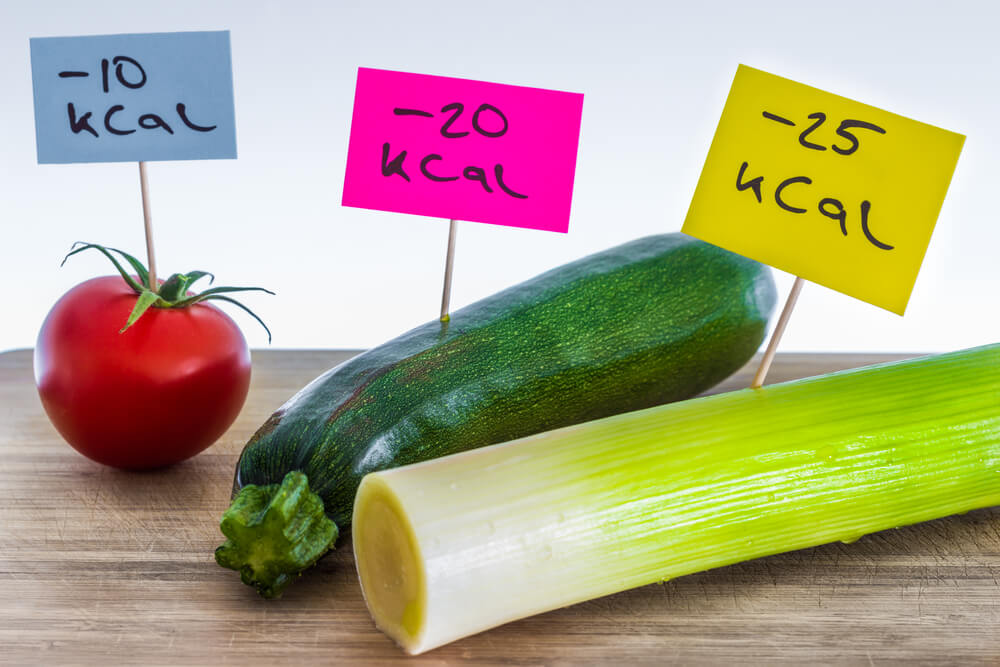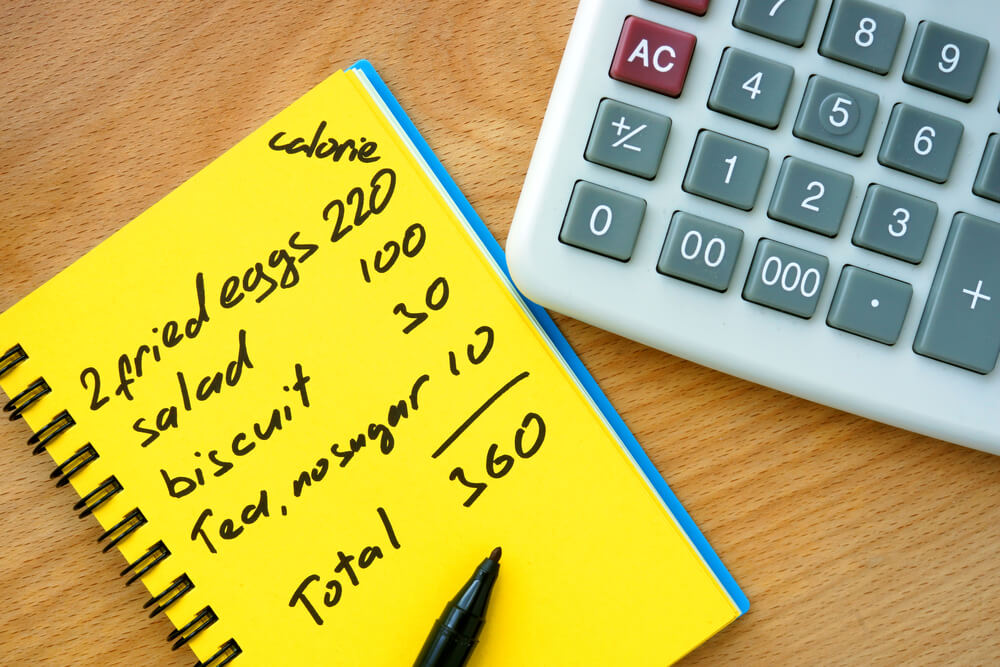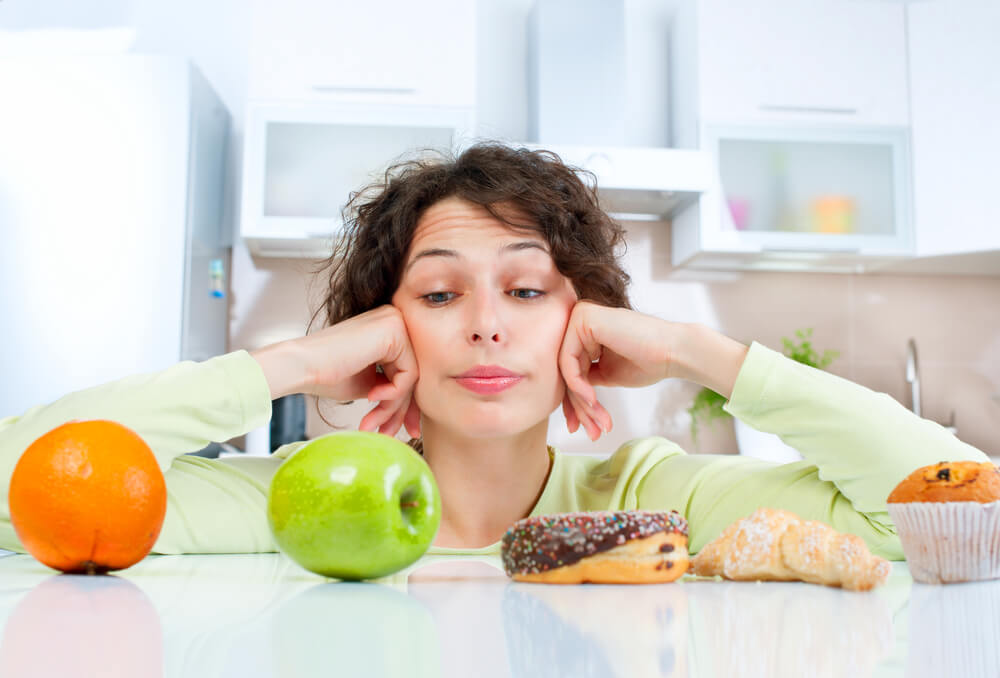
Want to lose weight? Start counting calories. Want to see the numbers on the scale drop dramatically? Start counting calories.
Want to cut back on your body fat percentage? Start counting calories.
Calories, calories, calories. Everything seems to revolve and focus on counting calories. It seems to be the pathway to success.
Some people believe that counting calories is the only way to lose weight. Other people claim it doesn’t do a damn thing. And some people fall in the middle, stating that it all depends on things like your body, metabolism, etc.
Well, what is it then? Here’s what we have to say about it:
Just counting calories alone isn’t going to give you the results you’re looking for. In fact, counting calories isn’t the key to losing weight.
Keep count of those calories until you’re blue in the face but if you aren’t exactly sure why you’re counting them and you aren’t planning things your foods out, you aren’t going to lose weight. These are also things you need to have a full understanding of if you want to lose weight without the hassle of counting calories, too.
The easiest way to get a grasp on all of these things is to take a look at weight loss and see how it is related to calories. Then we’ll give you an idea of what you can do besides counting calories in order to lose weight.
First and foremost, we should take a look at the physiology behind fat loss.
We have an assignment for you already.
You have to completely clear your mind of everything you’ve learned in regards to counting calories. In order to understand how it works, and why your body burns fat the way that it does, you have to start from scratch.
What Are Calories?
And with what a calorie is.
Do you know what it is? Like, give us a definition.
No? A lot of people can’t and it isn’t common to pick up a dictionary and start looking up the definition.
In terms of food, calories are the total amount of energy that’s needed in order to heat up 1 kg of water one degree Celsius.
So basically, it’s just stored energy that can be used. And of course, some foods have a lot more calories than other. These foods tend to have more potential energy in them. And there are also foods where you will find they have more calories per gram than certain others.
For example, one gram of protein and one gram of carbs are both equal to 4 calories. However, 1 gram of fat is the equivalent of 9 calories. This means double the amount of energy that a protein and carb might have.
And obviously, each body needs a specific amount of energy in order to keep going. We don’t just mean physically – we mean your organs need it to function properly. And this is called basal metabolic rate. Sometimes referred to as BMR, when you add the amount of energy you burn to this, you’re going to end up with your total daily energy expenditure (TDEE).

How exactly does your body get this energy it needs in order to stay alive?
It has 2 main sources it uses.
The first is something you (hopefully) do on a regular basis and that’s to eat food. The second comes from energy stored up, which is basically in two forms: muscle and fat.
So if you have energy available from food you just recently consumed, your body doesn’t need to reach into these various fat stores. And after you’re in this state of being fed, where your body can run fully on energy from food alone, it can last somewhere between 3 to 6 hours after the meal is over.
Speaking of meals, when you eat one, you’re providing your body with a ton more calories than it actually needs at that time. Let’s say you eat 600 calories in a total of 5 minutes. Well, during that time, perhaps your body was only able to burn 25 calories.
Those remaining calories are most likely going to get stored as body fat. So this means, although your body is running off the energy that comes from the food, a portion of the extra amount is going to be stored as body fat.
And yes, there are times when that specific source of energy runs out and all the nutrients from the food you just ate get completely burned up and used. This is when your body turns its attention to the energy it has stored up in order to keep going. So basically, your body starts to break down the fat into specific molecules your cells can use to get energy from.
When you eat food, your body is going to store fat. Once it finishes up burning and storing the energy that came from the food you just ate, it’s going to focus on burning fat again. 24-hours a day, your body goes back and forth and back and forth doing this.
So even if you totally overeat one day, the body is still going to go through certain periods of time during the day where it runs out of energy from food, so it has to start burning fat.
Of course, the amount of fat it ends up storing is going to be bigger than what it was able to burn, so that’s when nasty weight gain comes into play.
This all points to the fact that in order to cut back on the total amount of body fat our bodies carry, we have to make our body’s burn more fat in comparison to what it stores. So what’s the best way to make sure this happens? Keeping an eye on the amount of energy we provide our bodies with.
To put it simply, our body is going to store up extra energy in the form of body fat, which is then going to result in weight gain – so how do you make the exact opposite happen?
Put two and two together – you have to give your body less energy than what it needs, putting yourself in a calorie deficit. If you don’t do this, you aren’t going to lose weight. Simple as that.
What Do Calories Have To Do With Energy?
Here’s what happens when you give your body a bit less energy than it actually needs – it’s going to store less fat than what it’s burning because it doesn’t have nearly as much energy from food to live off of.
And when it comes to losing weight, how much you eat matters a lot more than what you eat. Of course, there are healthy calories and some not-so-healthy calories. But guess what? You can still get rid of the pounds by eating junk food. You just have to keep yourself in a calorie deficit.
Carbs aren’t going to make you fat – eating extra calories will.
So let’s see what calorie counting and weight loss have to do with each other. Obviously, counting calories is as simple as keeping an eye on how much energy you take in during the day. And by keeping track of how much energy you are supplying your body with, you can give it a little less so you can see less fat.
And this is based off of the fact that you know how much energy your body should be getting. That’s where a lot of people go astray – you need to make sure you have the appropriate meal plan worked out in order to give your body the correct amount of calories on a daily basis. Then you turn this into a ratio of correctly laid out macronutrients.
If you take one thing away from this article, take this away – the only way you are going to lose weight is by giving your body less energy in the form of calories than what it burns on a daily basis.
If you have zero interest in counting calories, you can still lose weight. But if you don’t want to keep an eye on the food you eat, you are not going to lose weight.
Think about the most popular diets around. The whole concept behind them is to cut out specific types of food, with a focus on other foods and eating during certain periods of time.
Some of the diets state you can have 3 meals a day, but you can eat all you want in the form of meat, veggies and fruits during those meals. And we’re going to promise you will lose weight – because we’re placing restrictions on what you want to eat, making it near impossible to consume more calories than you burn during the day. This is especially true if you exercise, too. Protein and veggies are low in fat, making them low in calories. Plus, veggies, protein, and fruits are very filling. So by cutting out the foods that tend to be rich in calories, this so-called diet is putting you into a calorie deficit, without you even realizing it.
Kind of makes you mad when you think about all the time and money you might have wasted on BS advertising campaigns for weight loss products when you probably could have done it yourself.
As promised, we told you we would supply you with a few tips about losing weight without counting calories. And we’re going to right now – but here’s what you need to remember.
Our tips are going to put you into a moderate calorie deficit, which is going to bring you slow but steady weight loss. So they are focused mainly on cutting back on your calorie intake, rather than counting calories.

First, start your day off right and have a breakfast that is high in protein.
There’s solid evidence that proves eating eggs in the AM can help you lose weight better than a grain-focused breakfast, like cereal or bagels. This is because the volunteers that ate eggs for breakfast ate a lot less calories at lunch and for the rest of the day. One of these studies also showed that some of the volunteers ate a lot less in a 36-hour period, versus those that didn’t eat eggs for breakfast.
Before you start worrying about your cholesterol, know that modern research shows eggs actually don’t do anything for your bad cholesterol levels. Doesn’t get much better (or cheaper) than simply having eggs at breakfast.
Next, bump up your overall intake of protein. Countless studies have solid evidence that prove diets high in protein provide more fat loss than diets lower in protein. It cuts back on hunger and gives you metabolism a big boost. There are 2 main reasons why these perks happen.
What Kind Of Foods Are Low In Calories?
First, protein uses a lot of energy in order to metabolize. Somewhere around 30% of its energy is used during the process. To compare, about 5 to 15% of carbs energy is used efficiently and 5% for fat. So that’s a solid amount.
And, secondly, like we said, protein is a lot more filling than things like fats and carbs, so you’re going to see yourself eating less. One study showed that increasing the volunteer’s protein intake to a mere 30% had them eating 440 less calories.
You also want to eat fibrous foods that are low in calories, because they’re good at keeping you full without weighing you down. This includes foods like pears, broccoli, raspberries, apples, bananas, green peas, oranges, Brussel sprouts, and spinach.
Cutting carbs can, of course, help you lose weight. We know you know this – but a side not many people know is that cutting carbs is a great way to cut back on your daily calorie intake as well. Get rid of things like sweets, sugary foods, and soda. With bread and potatoes, just limit your intake. Get your carbs from fruits and veggies instead.
Conclusion
Our last two tips are pretty obvious but they need to be said anyways – drink more water and get enough sleep! Water makes you feel full, so you aren’t going to eat as much calories. As a general rule, try drinking 2 glasses of water before you sit down at a meal. Some research shows that water can actually speed up your metabolism. And as for sleep, as if you needed another reason to get more, here’s a fun fact – not getting enough sleep raises the average adult’s risk of obesity by a shocking 55%.
Follow these rules instead of counting calories and you’ll be on your way to a thinner, happier you – without all the annoyances of counting each and everything you eat.
-Terry Asher
Terry
Latest posts by Terry (see all)
- How Important Are Net Carbs For Building Huge Muscle? - Apr 28, 2017
- The Matt Damon Workout Explained - Apr 27, 2017
- Watercress – Benefits And The Best Way To Consume It - Apr 26, 2017











If you are one of the few people who are struggling to lose weight because of your genetics, I encourage you to visit http://3wdietpro.com I was just like you before I read about the diet plan, but now I am almost more than 40 pounds lighter!
What are the other options, though?
Hi Jeff,
There are many feel free to email me at [email protected] for more info.
Thanks
-Terry Asher
[…] in the break room. These are small items you might forget about when attempting to tally up your calorie count for the […]
[…] Stop counting calories–it’s a complicated metric for dieting. If you keep consuming the supposed 2,000-calorie requirement, your body would be unable to burn through them all. Calories that don’t get used up get stored in fat reserves, which can stack up pretty fast. […]
[…] Stop counting calories–it’s a complicated metric for dieting. If you keep consuming the supposed 2,000-calorie requirement, your body would be unable to burn through them all. Calories that don’t get used up get stored in fat reserves, which can stack up pretty fast. […]
[…] Stop counting calories–it’s a complicated metric for dieting. If you keep consuming the supposed 2,000-calorie requirement, your body would be unable to burn through them all. Calories that don’t get used up get stored in fat reserves, which can stack up pretty fast. […]
[…] Stop counting calories–it’s a complicated metric for dieting. If you keep consuming the supposed 2,000-calorie requirement, your body would be unable to burn through them all. Calories that don’t get used up get stored in fat reserves, which can stack up pretty fast. […]